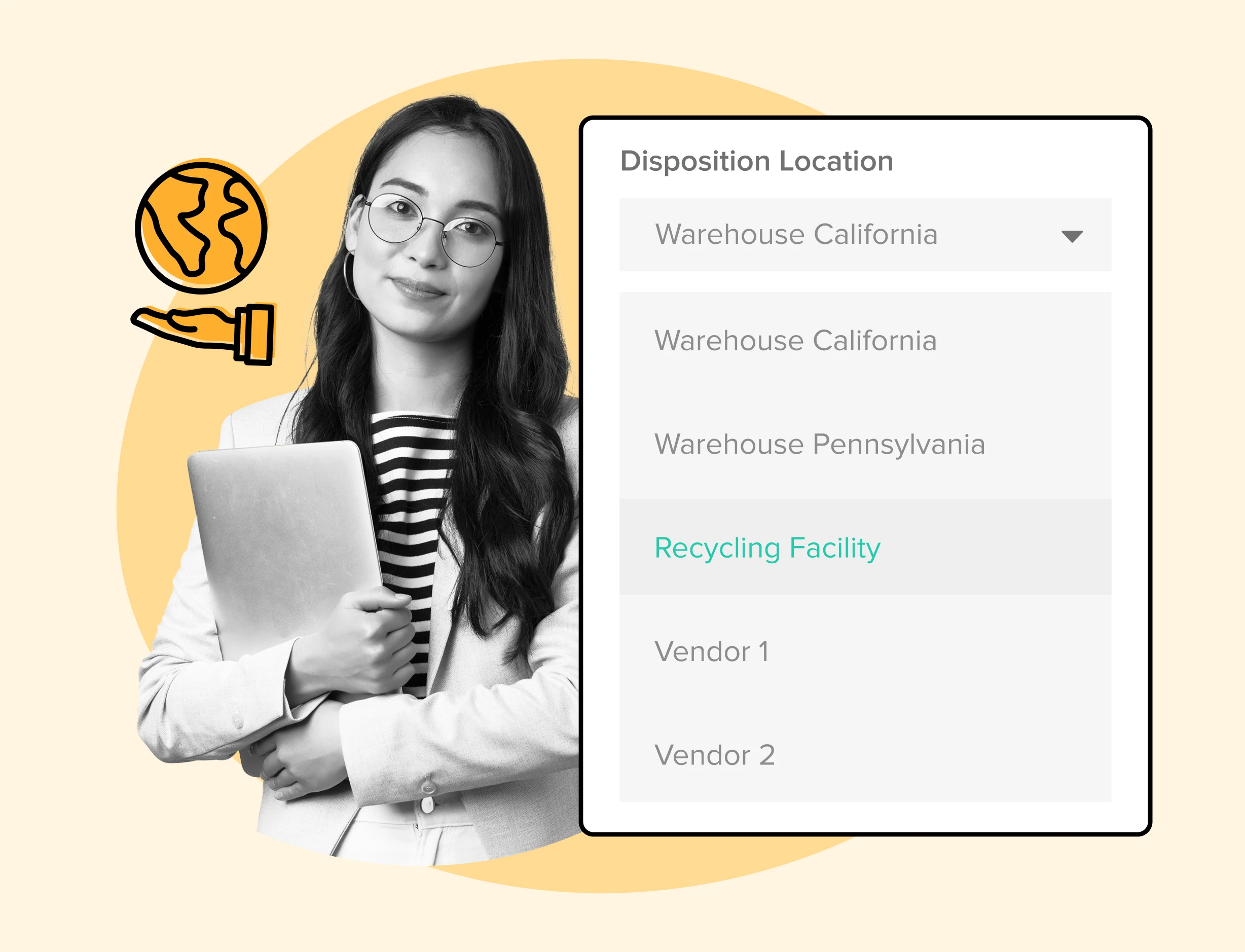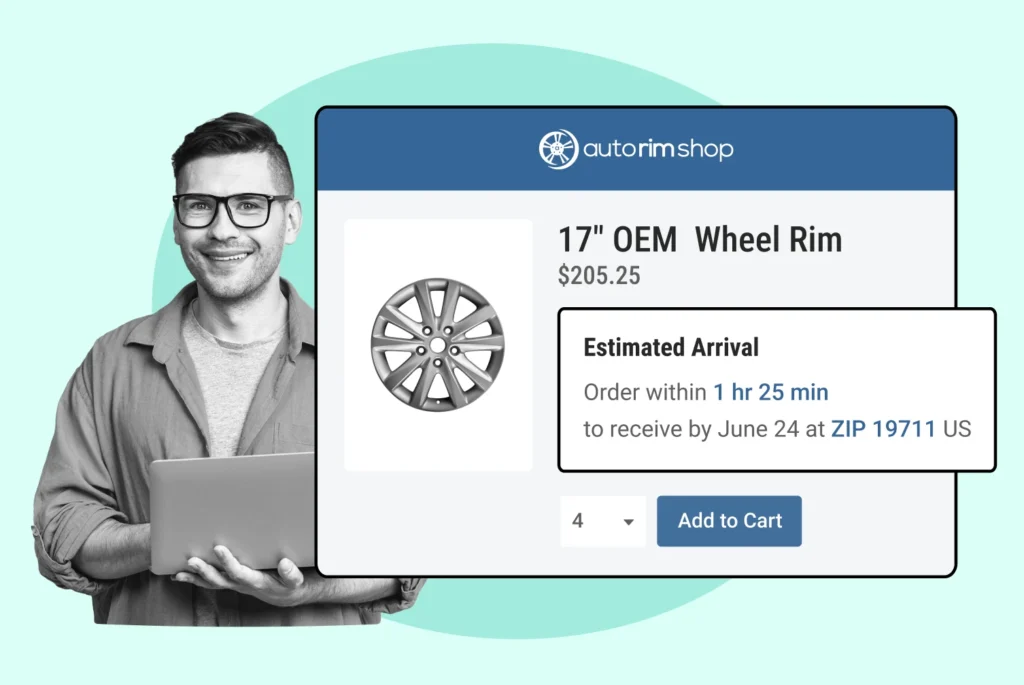
Mobile Shopping Trends: Hot Ecommerce Insights
Understanding mobile shopping trends is pivotal in today’s retail ecosystem. Stay ahead of them to navigate the evolution of mobile shopping!
Shipping, Tracking & Notifications
Boost customer experience and reduce support tickets
Realtime order and shipment tracking
Proactive order and shipping notifications
AI-Enhanced Discounted Labels
Predictive pre-purchase estimated delivery dates
Self-Serivce branded order tracking
Effortless experience delivered
Identify and Resolve Order Issues
Realtime order and shipment tracking
Make returns profitable and delight customers
Flexibility to define any return destinations & conditions
Simplify returns for your customers and team
Incentivize exchanges over returns
Returns management made easy for your team
Returns management made easy for your team
Easy claims and smart upsells
Understand why your customers are returning
In-Store & Curbside Pickup
Unify the online and the in-store experience
Hassle-free pickup experience for customers
In-Store dashboard to keep operations streamlined
In-Store and Online orders unified
Drive foot-traffic to your stores
Shipping, Tracking & Notifications
Boost customer experience and reduce support tickets
Realtime order and shipment tracking
Proactive order and shipping notifications
AI-Enhanced Discounted Labels
Predictive pre-purchase estimated delivery dates
Self-Serivce branded order tracking
Effortless experience delivered
Identify and Resolve Order Issues
Realtime order and shipment tracking
Make returns profitable and delight customers
Flexibility to define any return destinations & conditions
Simplify returns for your customers and team
Incentivize exchanges over returns
Returns management made easy for your team
Returns management made easy for your team
Understand why your customers are returning
In-Store & Curbside Pickup
Unify the online and the in-store experience
Hassle-free pickup experience for customers
In-Store Dashboard to keep operations streamlined
In-Store and Online orders unified
Drive foot-traffic to your stores
Boost customer experience and reduce support tickets
Realtime order and shipment tracking
Proactive order and shipping notifications
AI-Enhanced Discounted Labels
Predictive pre-purchase estimated delivery dates
Self-Serivce branded order tracking
Effortless experience delivered
Make returns profitable and delight customers
Flexibility to define any return destinations & conditions
Simplify returns for your customers and team
Incentivize exchanges over returns
Returns management made easy for your team
Equip your team for precise return checks.
Easy claims and smart upsells
Understand why your customers are returning
Unify the online and the in-store experience
Hassle-free pickup experience for customers
In-Store Dashboard to keep operations streamlined
In-Store and Online orders unified
Drive foot-traffic to your stores
Find the answer to all your questions
Take a step by step trip through our functionality to see how we can improve your ecommerce processes.
Explore the most comon questions about WeSupply
Calculate the ROI that WeSupply can bring you
Read actionable articles on how to optimize your post-purchase experience and decrease support tickets
Get inspired by stories of how our customers implemented an effortless post-purchase experience
Wondering if WeSupply is a good fit for you? Read through our use cases to see how we can help you increase conversion & improve CX!
A Deep Dive into Top Companies' Order Tracking & Returns Strategy
Find the answer to all your questions
Explore the most comon questions about WeSupply
Calculate the ROI that WeSupply can bring you
Request a no strings attached review of your current shopping experience and missed conversion opportunities
Take a step by step trip through our functionality to see how we can improve your ecommerce processes.
Read actionable articles on how to optimize your post-purchase experience and decrease support tickets
Get inspired by stories of how our customers implemented an effortless post-purchase experience
A Deep Dive into Top Companies' Order Tracking & Returns Strategy
Wondering if WeSupply is a good fit for you? Read through our use cases to see how we can help you increase conversion & improve CX!

Adopting a circular economy in e-commerce isn’t just good for the environment; it can differentiate your brand and satisfy the rising consumer demand for sustainable shopping. This transition might seem daunting, but our comprehensive exploration into circular economy ecommerce will clearly outline strategies for waste minimization and resource maximization. Ready to revolutionize your business and lead the charge towards a greener e-commerce model?
Adopting circular economy principles in eCommerce, such as recycling, reusing, and refurbishing, can benefit businesses by reducing costs, attracting eco-conscious consumers, and aiding in achieving global sustainability goals.
Sustainability in eCommerce is increasingly influenced by consumer preferences, with eco-friendly practices aligning with the values of a significant portion of customers, particularly younger demographics.
Technological innovations, such as the use of AI and machine learning, are revolutionizing sustainable supply chain management and returns processes, providing a competitive advantage and catering to the heightened consumer demand for sustainability.
WeSupply is transforming ecommerce with sustainability at its core, leveraging circular economy principles. Its Intelligent Dispositions system reroutes returns to recycling, cutting waste and fostering eco-friendly practices. Key features like QR code-based printerless returns, automatic labels, and in-store/curbside return options simplify processes and lessen environmental impact. By letting customers keep low-value items, WeSupply boosts satisfaction and cuts down on waste. Boost your ecommerce sustainability with WeSupply. Start embracing the circular economy now!
The circular economy transcends being a mere trend; it has become a necessity. For eCommerce businesses, the adoption of circular economy principles can lead to numerous benefits. From securing raw material supplies and stimulating innovation to attracting and retaining customers, talent, and investment, the circular economy is a key driver of competitiveness.
It also opens doors to new market opportunities such as the sale of refurbished or second-hand products, attracting budget-conscious and environmentally aware consumers. Moreover, by reducing the industry’s overall carbon emissions and resource consumption, the transition to a circular economy in the eCommerce sector can contribute to achieving global sustainability goals.
Grasping the essence of the circular economy paves the way for sustainable eCommerce. The circular economy in eCommerce involves a system where materials are:
recycled
reused
refurbished
kept in use
as opposed to being thrown away, aiming for a closed-loop system where no waste is produced. It reduces the environmental impact of material sourcing by minimizing the extraction of virgin resources, which is responsible for a significant portion of greenhouse gas emissions, water stress, and biodiversity loss.
Diverse circular business models in eCommerce include the circular economy business model, which can be categorized into the following circular model types:
Circular supply models using renewable resources
Resource recovery through recycling
Sharing models to split usage of products
Product life extension
These models offer a blueprint for sustainable eCommerce.
Sustainable online retail is underpinned by the core principles of a circular economy. The key principles include:
Prioritizing regenerative resources: Ensuring that renewable, reusable, non-toxic resources are used as materials and energy in an efficient way.
Stretching the lifetime of resources: Maintaining, repairing, and upgrading resources to maximize their lifespan.
Implementing take-back strategies: Giving resources a second life through recycling or repurposing.
These principles, reflecting personal sustainability values, are essential for creating a sustainable and environmentally-friendly online retail industry.
Utilizing waste as a resource by transforming waste streams into secondary resources and recovering waste for reuse and recycling is also essential. These principles, combined with rethinking the business model, collaboration throughout the supply chain, and incorporating digital technology, provide the foundations necessary for sustainable online retail.
eCommerce can play a significant role in driving a more circular economy by adopting circular business models that articulate the use of existing materials and products before sourcing new natural resources. Investing in eco-friendly product design, implementing programs for customers to return products for refurbishment, and decarbonizing supply chains are some of the strategies that eCommerce businesses can adopt to drive the circular economy.
These strategies not only address environmental concerns but also align with consumer preferences, as studies show that a significant portion of consumers actively searching, especially younger demographics, prefer to shop with brands that make efforts to be environmentally friendly.
WeSupply’s Intelligent Dispositions system is a groundbreaking initiative that significantly contributes to the advancement of the circular economy within the ecommerce sector. By intelligently directing returned items to recycling centers, this system minimizes environmental impact and promotes sustainability. This innovative method enhances customer convenience by streamlining the return process and demonstrates businesses’ commitment to eco-friendly practices. Transform your returns and embrace sustainability. Book your demo with WeSupply today for a greener ecommerce tomorrow.
Several steps are involved in constructing a circular business model for online retail. It starts with considering the ease of gaining access to used products and the ease of recycling materials, components, or complete products. The amount of value that can be recovered from a circular pathway depends on how much value is locked up in the product. Companies can utilize a circularity matrix to determine the most economically sustainable strategy by considering how easy it is to get the product back and how easy it is to recover value from the product.
Ultimately, developing a sustainable business model for online retail requires:
a commitment to sustainability
implementing sustainable shipping practices
creating recycling policies
reducing energy waste
offering products that encourage sustainability.
WeSupply is at the forefront of crafting a circular business model for online retail, with a strong focus on sustainability that extends throughout the entire shopping process. By introducing printerless returns, where customers can use QR codes instead of traditional paper labels, WeSupply significantly cuts down on waste. Furthermore, their Intelligent Dispositions system plays a crucial role in ensuring that returned items are efficiently directed to recycling centers, thereby minimizing environmental impact even further. This holistic approach not only offers greater convenience for customers but also underscores businesses’ commitment to eco-friendly practices. Through these innovative strategies, WeSupply is helping to transform the online retail sector into a more sustainable, circular economy.
The quest for sustainability among companies necessitates a reimagining of supply chains. With up to 90% of a company’s environmental footprint generated via its supply chain, sustainable supply chain practices can lead to a significant competitive advantage. Advances in technology such as:
3D printing
blockchain technology
AI
machine learning
are revolutionizing supply chain management by facilitating automation in planning, demand forecasting, and predictive maintenance, contributing to a more efficient and greener procurement process.
While the innovations are promising, companies also face challenges such as the cost of implementing sustainable supply chains and difficulties in monitoring the sustainability of complex supply chains.
Customer engagement in the journey towards sustainability is key to the implementation of circular economy practices in eCommerce. Businesses can engage customers in sustainable practices by optimizing packaging to be more efficient and using materials that are recyclable, biodegradable, or compostable.
Transparency about a company’s sustainability efforts can foster trust and loyalty among customers. Here are some ways businesses can promote sustainability and eco-friendly habits:
Provide educational content related to sustainability, such as how to responsibly use and dispose of products
Offer incentives for eco-conscious choices
Promote recycling and waste reduction
Use renewable energy sources
Support local and sustainable suppliers
Encourage employees to adopt sustainable practices
WeSupply is pioneering efforts to encourage customers towards a more sustainable future with their innovative Green Returns policy. This approach allows customers to keep low-cost items when requesting a return, eliminating the need for shipping labels and reducing the environmental impact associated with returns. By cutting down on unnecessary returns and waste, WeSupply not only saves on labor and return costs but also accelerates the refund process, greatly enhancing customer satisfaction. This strategy not only benefits the environment by potentially reducing items ending up in landfills but also fosters a positive customer experience by streamlining the return process.
By implementing these strategies, businesses can influence customer behavior towards more sustainable practices and contribute to a greener future.
Keep the item and reduce waste
Book a quick call with our experts to see how WeSupply can help you increase customer satisfaction by giving them their refund or exchange quickly, without making them ship back an item that might even end up in the landfill.
The transition to a circular economy is significantly facilitated by digital technologies. The integration of AI and machine learning for tasks such as copywriting, chatbots, and personalization can significantly enhance the customer experience and facilitate the shift towards a sustainable business model. eCommerce platforms are leveraging data analytics to focus on sustainability, agility, and customer satisfaction, reducing operational and capital costs.
Further, the use of digital tools like ecoinvent Association’s tool for importing carbon-emission factors into product footprint management solutions and Queen of Raw’s dashboards for tracking environmental benefits and monetizing waste, aid eCommerce companies in operating sustainably.
Reducing waste and enhancing sustainability in eCommerce significantly relies on data-driven decisions. Data analytics enables businesses to pursue sustainable practices including reducing waste, improving safety, and decreasing production costs. It helps uncover hidden patterns in operational processes, which can be used to optimize the use of production units and supply chains for waste reduction.
Furthermore, the use of data analytics in inventory optimization, production optimization, and the efficient use of energy and resources can significantly improve the sustainability footprint of eCommerce businesses.
WeSupply empowers ecommerce with a data-driven strategy to minimize waste and boost sustainability through advanced analytics. Key features include:
WeSupply champions the belief that informed decisions, grounded in analytics, are crucial for business success, driving efficiency, customer satisfaction, and sustainability. Boost your ecommerce with data-driven sustainability. Get started with WeSupply now!
The shift in consumer demand towards sustainability profoundly influences eCommerce. Here are some key statistics:
More than 60% of respondents in a 2020 McKinsey US consumer sentiment survey indicated they would pay more for products with sustainable packaging.
A NielsenIQ study found that 78% of US consumers say that a sustainable lifestyle is important to them.
Millennials are more likely (75% of respondents) than Baby Boomers to actively change their habits to be more sustainable.
These statistics highlight the growing importance of sustainability in the eCommerce industry.
Products making ESG-related claims averaged 28% cumulative growth over a five-year period, compared to 20% for products without such claims, indicating a strong market for sustainable goods.
The creation of a sustainable returns process for eCommerce businesses significantly hinges on partnerships for sustainability. eCommerce businesses can reduce their carbon footprint by opting for recycled packaging materials, which can also save money due to plastics taxes in some countries. Implementing sustainable return methods, such as partnering with eco-friendly logistics companies and introducing label-free return drop-off programs, can enhance efficiency and reduce environmental impact.
Furthermore, implementing a local return policy where customers return products to local stores or hubs can reduce transportation emissions.
WeSupply is redefining the role of eco-friendly logistics in returns, streamlining the process while significantly reducing environmental impact. Through innovative solutions, WeSupply enhances customer satisfaction and operational efficiency. Key features include:
In-Store and Curbside Returns: Encourages returns at physical locations like Target and Walmart, driving foot traffic, saving shipping costs, getting inventory back faster, and allowing for pre-approved returns and instant refunds.
WeSupply’s approach not only makes returns more sustainable by reducing unnecessary waste but also offers a seamless, customer-friendly return experience. Streamline your returns and go green with WeSupply. Book your demo today for a sustainable tomorrow!
The lifecycle of returned products is extended and waste is reduced when such products are resold and refurbished, giving them a second chance. Reselling returned products online, known as reCommerce, allows businesses to recover costs and promotes sustainability by reusing items rather than discarding them.
Here are some benefits of reCommerce:
It reduces waste and promotes sustainability
It extends the lifecycle of products
It allows businesses to recover costs
It provides affordable options for consumers
It reduces the need for new production
In fact, approximately 50% of second-hand sales are expected to be made through online resale by 2024. By embracing reCommerce, businesses can contribute to a more sustainable future.
Successful implementation of circular economy practices requires excellent customer service and a straightforward returns process to ensure customer buy-in and participation.
The lifespan of returned products is extended through donation, which also serves to support communities. The donation of returned items can assist in solving pressing social issues by providing essential goods to those in need. Companies like Brooklinen donate unsellable returned items to charities that support the homeless, ensuring that the products are put to good use.
The donation process can be streamlined for brands using tools like Loop’s “Policy Enforcer,” which identifies non-resellable products and directs them to charities.
Recycling returned products makes it possible to close the loop in eCommerce waste management. Implementing a circular returns process can involve refurbishing, recycling, and donating returned products to achieve a more sustainable eCommerce operation. Recycling returned products helps offset the costs associated with returns, such as shipping and handling, and prevents the items from ending up as waste.
Recycling facilities can be utilized to process returned products that cannot be repaired or resold, transforming them into raw materials for new products and reducing landfill waste.
WeSupply’s Intelligent Dispositions system is at the forefront of integrating recycling into the ecommerce returns process, marking a significant step towards sustainable waste management. By channeling returned items directly to recycling centers, it plays a critical role in reducing the environmental footprint of online shopping and advancing the circular economy. This system not only simplifies returns for customers but also showcases a business’s dedication to environmental stewardship. Through this approach, WeSupply is helping close the loop in ecommerce waste management, transforming returns into an opportunity for sustainability.
The promotion of sustainability in eCommerce can be significantly enhanced by technology. Leveraging technology for returns management can result in better profit margins by cutting costs associated with transportation and by regaining value from recycled and resold items. Returns management technology can help companies monitor the financial value lost to returns and identify which parts of returned products can be refurbished, reused, or provide value back to the company.
Implementing returns management systems can boost a brand’s reputation for social and environmental responsibility by supporting remanufacturing or refurbishing efforts to extend product lifecycles.
WeSupply is pioneering sustainability in ecommerce through its innovative returns management system. By optimizing the process of handling returns, WeSupply enables businesses to significantly reduce waste and environmental impact. This approach not only streamlines the return process for customers but also aligns with eco-friendly practices by minimizing unnecessary transportation and packaging. Through leveraging advanced technology, WeSupply is at the forefront of transforming returns management into a key component of sustainable business strategies, making it easier for companies to contribute positively to the environment while enhancing customer satisfaction.
Sustainability presents a robust business case. It’s not just about doing good for the planet, it’s also about doing good for business. Shoppers are increasingly willing to spend more on sustainable products, with a 71% increase in Google searches for sustainable goods between 2016 and 2021.
Adopting sustainable practices like utilizing renewable energy or electric vehicles for transportation can lead to significant cost savings for eCommerce businesses. A survey by the IBM Institute for Business Value found that 71% of employees and job seekers find environmentally sustainable companies more attractive.
Despite the challenges presented in transitioning to sustainable returns, there are available solutions. The environmental impact of returns in eCommerce includes increased emissions and energy consumption due to transportation, and potential contribution to landfill waste if returned items are not resold.
Implementing eco-friendly packaging can reduce the carbon footprint associated with returns. Here are some strategies to consider:
Use recycled or biodegradable materials for packaging.
Optimize packaging size to minimize waste.
Encourage product recycling by providing customers with information on how to recycle or responsibly dispose of returned items.
WeSupply is leading the way in navigating the complexities of sustainable returns within the ecommerce landscape. Their sophisticated platform simplifies the returns process, ensuring that it aligns with eco-friendly principles by minimizing waste and promoting recycling. By offering solutions such as printerless returns and intelligent dispositions, WeSupply facilitates a seamless, environmentally conscious returns experience. This not only enhances customer satisfaction but also supports businesses in their journey towards sustainability. WeSupply’s approach addresses the challenges of sustainable returns, proving that eco-friendly practices can coexist with efficient customer service and operational excellence.
By implementing these strategies, you can promote a circular economy and minimize waste.
Printerless returns via QR code
Book a quick call with our experts to see how WeSupply can improve your customer experience by allowing them to ship their returns without a printer.
eCommerce’s future is firmly rooted in policy, innovation, and the worldwide shift towards sustainability. Artificial Intelligence’s growing influence in eCommerce is expected to continue, integrating AI and machine learning for tasks such as copywriting, chatbots, and personalization, which could transform the customer experience and facilitate the shift towards a sustainable business model.
Omnichannel eCommerce is becoming increasingly important, with businesses needing multiple consistent channels for direct customer engagement. Furthermore, the adoption of various payment methods and the ability to save payment information on eCommerce sites are increasing conversion rates.
Looking forward, it’s evident that eCommerce’s path is intertwined with the era of sustainability. The adoption of circular economy principles in eCommerce is no longer optional; it is a necessity for survival. With the growing importance of sustainability in consumer purchasing decisions and the rising influence of digital technologies, the eCommerce industry stands on the brink of a transformative era.
The shift towards a more sustainable future is not just a trend, but a global movement that is here to stay.
In conclusion, the adoption of circular economy principles in eCommerce is a crucial step towards a more sustainable future. From providing a competitive edge and increasing customer loyalty to reducing environmental impact and waste, the benefits of a circular economy in eCommerce are manifold. While challenges exist, with the right strategies, technology, and commitment, eCommerce businesses can navigate the complexities of sustainable returns and contribute to a more sustainable and prosperous world.
WeSupply is revolutionizing online business practices by integrating the principles of the circular economy to maximize sustainability. Through its Intelligent Dispositions system, WeSupply directs returned items to recycling centers, effectively reducing waste and promoting eco-friendly practices. The platform’s innovative features, including printerless returns via QR codes, automatic return labels, and options for in-store and curbside returns, streamline the return process while minimizing environmental impact. By allowing customers to keep low-cost items, WeSupply not only enhances customer satisfaction but also reduces unnecessary returns and waste. This comprehensive approach demonstrates how WeSupply is facilitating a seamless transition towards sustainable operations for ecommerce businesses, proving that efficiency and environmental stewardship can go hand in hand. Elevate your ecommerce with sustainability. Get started with WeSupply and embrace the circular economy today!
Circular commerce is a model of production and consumption that involves sharing, reusing, repairing, and recycling materials to extend the life cycle of products, ultimately reducing waste to a minimum. It is an alternative to the traditional consumption model.
In a circular economy, waste is minimized, and products and materials are kept in use. Examples of the circular economy include brands like IKEA, Adidas, and Burger King, which are taking innovative approaches to reduce waste and promote reuse and recycling.
Implementing a circular economy in eCommerce can lead to increased competitiveness, innovation, and customer loyalty, while also creating new market opportunities and contributing to global sustainability goals.
WeSupply integrates circular economy principles into ecommerce by directing returned items to recycling centers, reducing waste, and promoting eco-friendly practices. This approach aligns with sustainability goals by minimizing environmental impact.
WeSupply offers a range of features to streamline the return process, including printerless returns via QR codes, automatic return labels, and options for in-store and curbside returns. These features simplify the process for customers and reduce the environmental footprint of returns.
Yes, WeSupply’s approach to managing returns focuses on reducing unnecessary returns and waste. By identifying patterns in returns and offering sustainable options, WeSupply helps businesses cut down on return-related waste and costs.
The Intelligent Dispositions system intelligently directs returned items to recycling centers or other sustainable outcomes. This system is a key component of WeSupply’s efforts to minimize environmental impact and support the circular economy.

Learn How To Create Successful Post Purchase Email Campaigns
Build an effective post-purchase email flow that helps you increase customer satisfaction and drive revenue growth!

Understanding mobile shopping trends is pivotal in today’s retail ecosystem. Stay ahead of them to navigate the evolution of mobile shopping!

We’ll guide you through tactics that enhance loyalty and customer satisfaction, all while keeping your profit margins healthy!

Turn your product pages into conversion engines: exceptional design, engaging content, smart SEO, and flawless mobile experience!

The top e-commerce platforms tailored to diverse business needs: choose a solution that promises growth, efficiency & customer satisfaction!

7 actionable steps to help you transform your customers into brand advocates, ensuring your brand’s message is enthusiastically shared!

This article will teach you how to grow while staying sustainable as consumers increasingly favor responsible brands.

Let’s delve into return windows, their influence on brand loyalty, and the balancing act businesses perform when setting these timeframes.

Effective strategies for mobile return optimized returns in e-commerce: enhance customer satisfaction and streamline your operations!

Elevate your online gift exchange e-commerce operations: proven tactics that enhance customer satisfaction and reduce hassle!